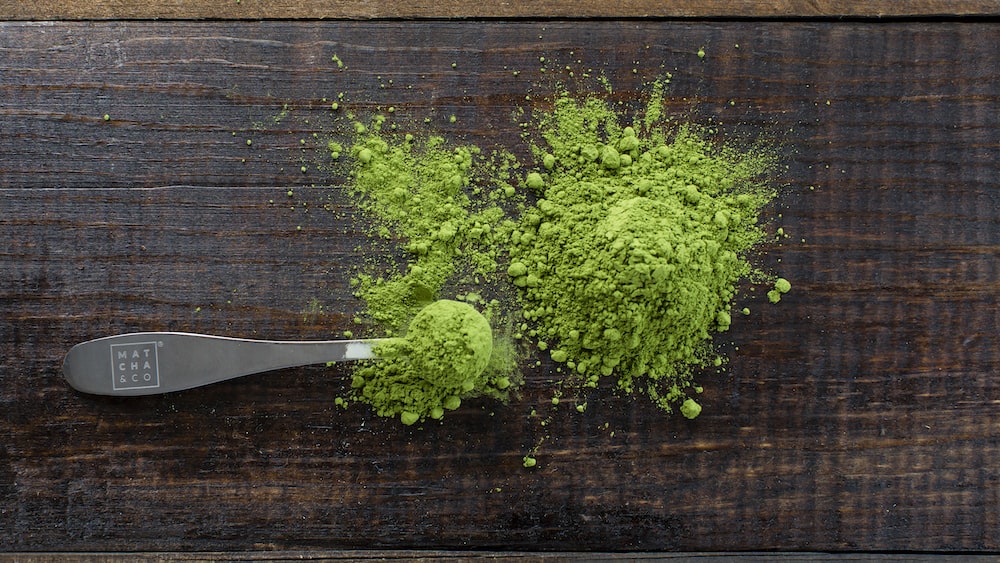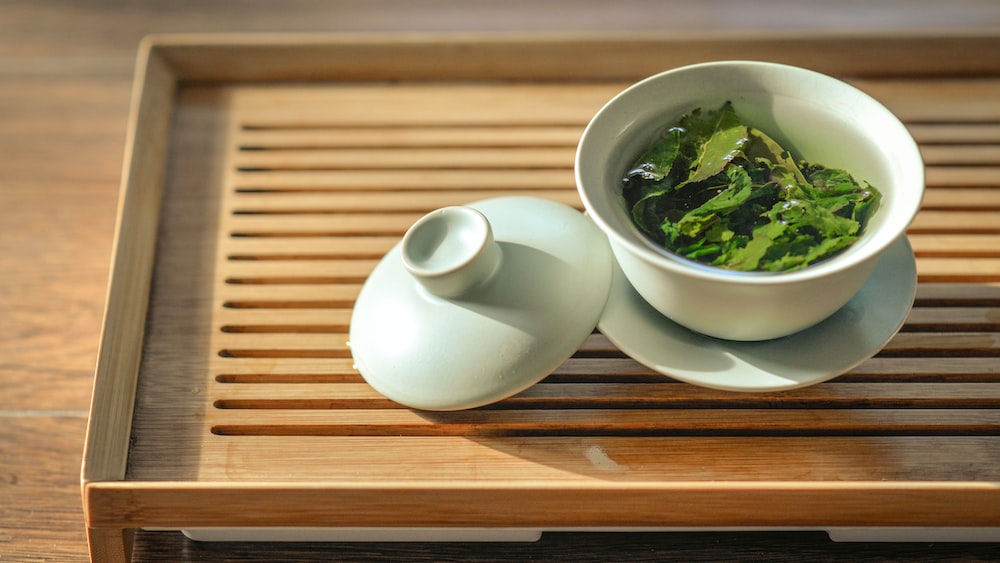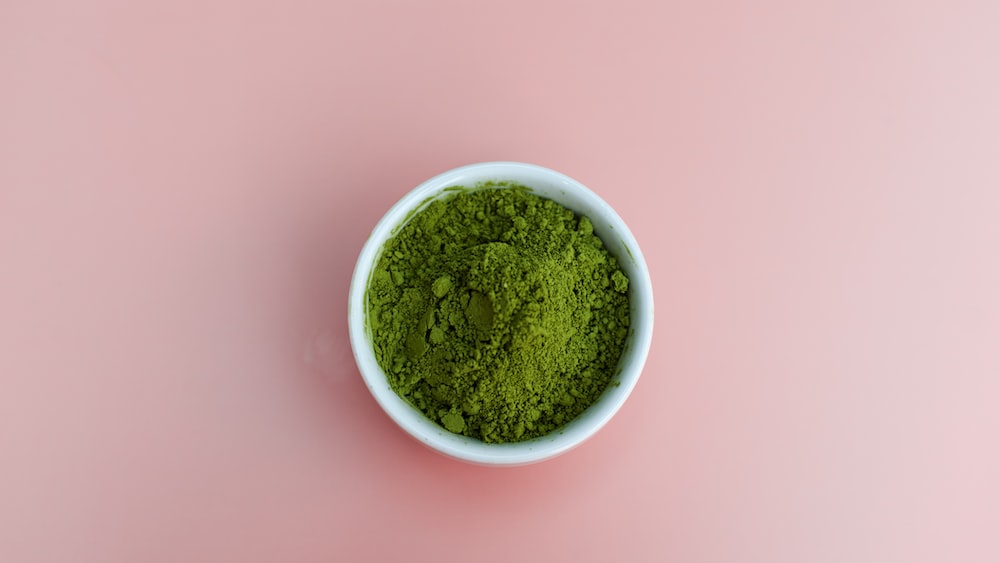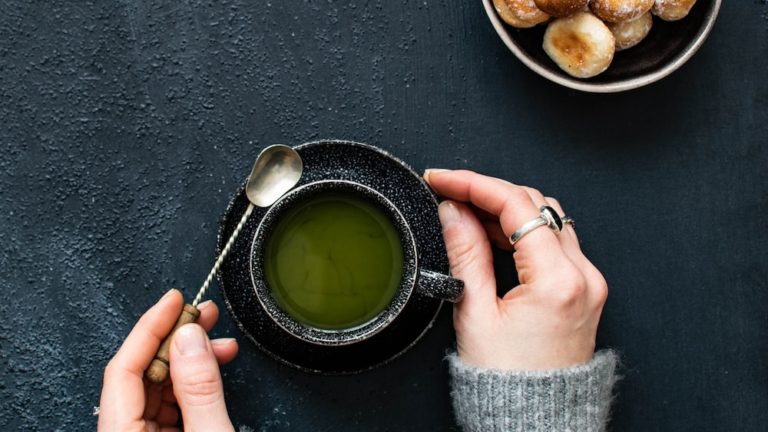11 Reasons Why Green Tea For Upset Stomach Works Wonders

11 Reasons Why Green Tea For Upset Stomach Works Wonders
Ever been hit with that killer stomach ache in the dead of the night, or that nagging nausea that just wouldn’t quit? Isn’t it just the worst?
Enter green tea, the caped crusader battling the monsters inside us! Metaphors aside, green tea has indeed been scientifically proven to have myriad health benefits, among which is its wonderful ability to soothe upset stomachs. This post intends to serve the tea enthusiasts and those tummy-troubled knights seeking relief. We shall flit through the verdant fields of green tea knowledge, quenching doubts, and quieting the grumbling beast that causes you discomfort.
Understanding Green Tea
Before we dive in head first into the calming green waves, let’s equip ourselves with a bit more understanding of what green tea really is.
What is Green Tea?
Unlike its darker cousins, black and oolong, green tea is produced by halting the oxidation process of the tea leaves, thus retaining an emerald hue. Technically, it’s the raw equivalent in the tea world, much like sushi is to cooked fish – risky comparison but we’re advancing boldly!
This minimal processing means a whole bunch of good stuff remains intact like polyphenols, flavonoids, and the highly coveted catechins. Are those goosebumps I see? Bear with me, trust me, it’s not as complicated as it sounds.

Green tea, the unadulterated leafy gal, boasts a treasure trove of health benefits due to its rich nutrient profile. To give you just a hint, imagine it as a posh cocktail party where the likes of catechins, Vitamin B, folate, and manganese rub shoulders with each other. Quite an impressive guest list, wouldn’t you say?
Green tea, the unadulterated leafy gal, boasts a treasure trove of health benefits due to its rich nutrient profile.
The Health Benefits of Green Tea
Green tea is the proverbial Swiss Army Knife of teas. The many potential health benefits of drinking green tea are akin to a few magical spells, beneficial for anything from improving heart health to aiding in weight loss, and let’s not forget its role as a potential cancer inhibitor. Green tea has been shown in some studies to reduce the risk of cardiovascular disease and some forms of cancer.
But, are you ready to have your socks blown off? Scientists have recently found evidence that the antioxidants found in green are potent fighters against stomach ulcers! Yes, you read that right: those tiny leaves do pack a serious punch.
To top it off, a cup of green tea might also help manage symptoms of conditions like diabetes. Really, if green tea were a person, it’d be the one your high school counselor would gush over–so full of promise!
The Role of Green Tea in Digestive Health
And on the note of promise, let’s get our hands dirty (hypothetically, of course) and delve into the specifics. Shall we explore how green tea dances in our digestive tract, doing the jitterbug to the tune of health and wellness?
1. Green Tea and Its Soothing Properties
Green tea is stashed with bioactive compounds possessing anti-inflammatory and antioxidant properties. Now, you might wonder what these science jargon words have got to do with your unruly stomach.
As it turns out, an upset stomach often stems from inflammation. Swigging down some green tea, then, is like sending in an army of peacekeepers to mediate the situation. It soothes the stomach, much like a dog whisperer calming an excitable canine.
2. Antioxidants in Green Tea
Remember those toxins you’ve heard about? The ones chilling out in your body, throwing wild parties when you eat too much fried food or get exposed to pollution? Those toxic trouble-makers are the free radicals, and antioxidants are their sworn nemeses.
‘But what does green tea have to do with all this?’ one might ask. Green tea is filled to the brim with potent antioxidants that cut the party short. They effectively pacify those free radicals, turning them from unruly teenagers into responsible adults, thereby reducing the risk of developing stomach ulcers and helping to alleviate stomach upsets.
Another crucial antioxidant that deserves a special mention is the epigallocatechin gallate (EGCG) – fancy name, isn’t it? This celebrity antioxidant in green tea is not only good for your skin and heart, but it also plays a major role in boosting gut health. It’s like having a superhero in your tea!
3. Green Tea and Hydration
Keeping our bodies hydrated is vital for overall health. So, when you’re down with an upset stomach or diarrhea, your body loses fluids and electrolytes. This can leave you feeling like a deflated party balloon.

This is where our green tea hero swoops in! Not only will it help replenish lost fluids, it also replaces lost electrolytes, thanks to its mineral richness. Moral of the story? Sip on green tea to keep yourself hydrated and restore that much-needed balance to your body system.
4. Green Tea and Digestive Enzymes
The tango between green tea and our digestive system continues… Now, it’s time for the digestive enzymes to take centre stage.
Drinking green tea may play a lot of roles in the body, key among them being aiding in digestion by stimulating digestive enzymes. In effect, your stomach becomes a well-oiled machine, humming along smoothly, breaking down the food in your gut and reducing bloating and gas. Besides, the mild caffeine content promotes digestion, but be warned – don’t have too much of a good thing! Even though green tea dances jigs on your digestion, gulping down excessive amounts may lead to a jittery tummy.
5. The Role of Caffeine in Green Tea
Ah, caffeine, the morning savior of many and the late-night nemesis of countless. For some folks, caffeine brings images of a jittering me, too enthusiastic about solving the conundrums of the universe. For others, it dwells as the comforting companion in our morning routine, who spins an enchanting dance of stimulation in our bodies.
However, most teas, including our trusted comrade, green tea, contain caffeine, but hey, don’t rush out of the room like it’s an unplanned spin-the-bottle game! According to a study [1], the caffeine in green tea interacts in a fascinating tango dance with the compound L-theanine, to give you a sustainably smooth and invigorating effect, without the peaky cliffs of jitters and subsequent crashes.
In simpler tea-time chat, it works like the slow-drip energy release of the gentle tortoise rather than the mad-dash energy rush of the hare. It’s the tortoise’s steady bop that keeps your body primed over time for handling challenges, might those challenges be a cluttered inbox, unannounced guests, or indeed, an unruly stomach.
Green Tea and Upset Stomach
It’s time to lift the curtain on the legendary ability of green tea to gracefully soothe your upset stomach. The role that green tea plays here is much like a surprise superhero movie cameo – it’s unexpected, exciting, and leaves you feeling better than you did before.
6. How Green Tea Soothes an Upset Stomach
Did you know that green tea, with its cushion of compounds, swaddles your upset stomach, much like a lullaby calms a fretful child? It’s true! Its myriad components resonate high notes that can enchant an upset stomach into soothing relief.
One key player in this orchestra is the group of antioxidants called catechins. Research points out that these catechins, like the friendly neighborhood shrink, help reduce inflammation in your stomach lining [2]. Imagine it as a magic balm soothing your sunburn – no more hissing pain with every minute movement of your body.

7. Green Tea for Nausea
Suffering from a bout of nausea? Meet your new best friend: green tea! The tender touch of green tea is like the purr of that wise old cat next door – the serenity that gently guides your body back to stability.
The unique cocktail of tannins and caffeine found in green tea gently assert their anti-nausea prowess, providing relief much like a perfectly tuned orchestra harmonizes a chaotic cacophony. The next time you feel like your insides are doing the macarena, give green tea a spin!
Green tea’s unique combination of tannins and caffeine can bring relief from nausea, acting like a wise and soothing neighbor’s cat that gently guides your body back to stability.
8. Green Tea for Bloating and Gas
Less poetically speaking, green tea is the Hulk of the tea universe – strong, surprisingly soothing, and excellent when it comes to smashing, or shall we say, easing bloating and gas. Your stomach, amidst all its riotous discontent, is often a party to unwanted bloating and gas.
A cup of brew infused with green tea leaves packs a gentle, yet mighty punch in terms of gastric relief. Catechins (do remember them from a few paragraphs ago?) show their muscle again by gracefully tightening the rope on the unruly wild horse of bloating and gas [3]. They help to calm your inflamed gut and helps it return to its more docile, deflated state. In short, green tea is nothing short of a gastric superhero!
9. Green Tea for Diarrhea
Life’s not always roses and unicorns. Sometimes, it includes the untroddens like diarrhea that tag along uninvited and make themselves too comfortable. But never fear – the boat of green tea is here to help you sail these troubled waters!
Two key elements in green tea, Theanine and Polyphenols, are known for their antimicrobial prowess [4]. Simply put, they are like unsung knights, bravely battling the nefarious bacteria often responsible for diarrhea. A warm mug of green tea may just be the gentle nudge your digestive system needs to stabilize itself.
10. Green Tea for Stomach Cramps
Stomach cramps can feel much like the comedy duo of Laurel and Hardy – unpredictable and often funny, but not when their antics have your insides in knots. Green tea, interestingly, in calming your upset stomach, can also provide some much-needed refuge from stomach cramps.
Similar to that comforting hand that eases away the tension in your temples, the tannins in the green tea may promote muscles’ relaxation in your gut [6]. Not just one, but two birds with one stone – that’s the magic of green tea.
Moreover, green tea’s mild anti-inflammatory properties might contribute to easing the inflamed cramp-invaded lining of your stomach. So the next time your stomach feels like it’s hosting the Olympics for cramps, reach out for the magic potion – a cup of warm green tea.
11. Green Tea for Indigestion
Indigestion is quite the complicated patron at the table of stomach disorders, with an array of symptoms to its credit, from bloating to an uncomfortable sensation of fullness. However, our humble warrior, green tea, can provide a sigh of relief here too!
The valuable stockpile of antioxidants and tannins in green tea can put this digestive disarray in check by facilitating smoother digestion [7]. So, before your stomach embarks on its next wild rumpus, why not soothe it with the elegance of green tea?

How to Prepare Green Tea for Upset Stomach
Finally, let’s come to the pièce de résistance – preparing that soothing elixir of green tea. Exploring this process is like unwrapping your birthday gifts – anticipatory, exciting, and always ending in joyful satisfaction!
Choosing the Right Green Tea
In a garden of green tea, how do you pick the right flower? Now that’s a dilemma! While the real snobs amongst us might prefer picking tea leaves straight from the garden, for the rest, it’s a matter of choosing from the vast array of brands and grades available. Look out for high-quality green tea that’s rich in color, loaded with freshness, and gifted with an uplifting aroma.
The bounties of green tea come in many forms. For the right tea, opt for loose leaf over tea bags, as it generally tends to be fresher, keeping the antioxidants intact. But hold your tea-loving horses! While we’re talking about varieties, it’s worth mentioning that incorporating ginger tea can be a beneficial choice too.
When choosing green tea, look for high-quality loose leaf options that are rich in color, freshness, and aroma to ensure the best taste and antioxidant benefits.
Brewing Techniques
Ah, the art of brewing! The subtle dance of tea leaves in boiling water. But we can’t be too nonchalant, can we? To extract the maximum potential from your green tea, keep your water temperature in check. Aim for a gentle simmer, not a vigorous boil. You wouldn’t want to scald the leaves now, would you? The ideal temperature should vary between 160 to 180 degrees Fahrenheit.
Next, dive your tea leaves or teabag into the water, and let them steep for about 2-3 minutes. Resist the temptation to overbrew – unless, of course, you fancy a cup of bitter tea. We didn’t think so!
When and How Much to Drink
Enjoying green tea is not just about what goes in your teacup, but also when it does. Timing can make all the difference on your digestive roller coaster ride. It’s often ideal to drink green tea before or after meals but not during. Drinking it mid-meal might interfere with iron absorption, pushing you onto Mr. Digestion’s naughty list.
On the question of ‘how much’, studies suggest 2-3 cups a day should be your sweet spot. A cup too more and you might end up racing with the wind to the restroom, courtesy of diarrhea.
FAQs
1. Can Green Tea Help with Other Digestive Issues?
In terms of other digestive issues, green tea certainly comes to the rescue. It’s been found to aid in managing conditions such as irritable bowel syndrome and gastritis, to name a few.
2. Are There Any Side Effects of Drinking Green Tea for Upset Stomach?
Regarding side effects of drinking green tea, they are minor and occur if consumed excessively. Too much green tea could lead to digestive discomfort or insomnia due to caffeine, but these cases are few and far between.

3. Can Everyone Drink Green Tea for Upset Stomach?
While green tea can provide relief for most people experiencing an upset stomach, it’s not a one-tea-fits-all situation. Those with specific conditions, like gastric issues or sensitivity to caffeine, may need to exercise caution and consult their healthcare professional before incorporating green tea into their routine.
4. Can I Drink Green Tea on an Empty Stomach?
Drinking green tea on an empty stomach, is up for debate. Some health experts believe it could lead to stomach acidity. To play it safe, it’s probably best to have a bite to eat before indulging in your morning cuppa.
Conclusion
There’s no denying that the allure of green tea is potent; it’s no wonder we’re all spellbound by its mystique and charm. But while its magic unfolds in our teacups, let’s not forget the scientific backing it carries in soothing an upset stomach and offering various health benefits. So, the next time your tummy throws a temper tantrum, don’t forget the protective and healing powers of the humble green tea leaf.
Thank you for joining us on this tea-riffic journey. Stay healthy, stay hydrated, and remember, the right cup of tea can make everything better. Ah, isn’t life just brew-tiful? Keep sippin’ till we spill the tea again. Yours in tea, Zoe.






